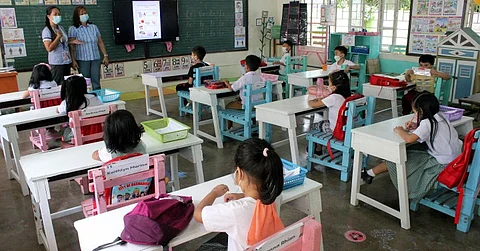
- NEWS
- the EDIT
- COMMENTARY
- BUSINESS
- LIFE
- SHOW
- ACTION
- GLOBAL GOALS
- SNAPS
- DYARYO TIRADA
- MORE

"Anak ko 'yan! Mana sa’kin 'yan!" (“That’s my child! They got that from me!”) — a familiar line often echoed by proud parents. But when it comes to a child’s intelligence, who really gets the credit — the mother or the father?
Balancing the influence of nature and nurture has always been a complex debate. Is a child’s cognitive ability inherited through genes or shaped by environment and learning? Interestingly, studies suggest that mothers may play a more crucial role in determining a child’s intellectual capacity.
Science points to the X chromosome as a significant carrier of genes associated with intelligence and mental disorders. Since females have two X chromosomes and males have only one, paired with a Y, males are statistically more vulnerable to X-linked mental conditions.
This chromosomal difference is often used to explain why certain cognitive traits — including intellectual potential and disabilities — may be more significantly inherited from the mother.
But genetics is just the start.
During pregnancy, the mother’s nutrition, lifestyle, stress levels, and even emotional state contribute to fetal brain development. A mother’s womb is a child’s first classroom, and what happens during those nine months sets the foundation for learning and behavior.
Yet, let’s set genetics aside for a moment. What happens after birth? Once a child has inherited their DNA, who then becomes most responsible for nurturing their cognitive abilities?
According to data from the Philippine Statistics Authority, 18.96 million students are not 'functionally literate.' Even more alarming, a Senate education hearing revealed that nearly 19 million high school graduates in 2024 cannot fully read or comprehend simple texts.
This raises a disturbing question: Are Filipinos naturally less intelligent, or is this the tragic consequence of a broken educational system? Or worse, are we becoming exactly what José Rizal warned of in his essay The Indolence of the Filipinos — passive, disengaged, and intellectually stagnant?
Meanwhile, the Philippines’ premier university surprisingly flooded its 114th Commencement Exercises with Latin honors. Of the 3,876 graduates, 61 percent — or around 2,369 students — received awards.
Behind the numbers, the result is linked to the unrestricted use of artificial intelligence during the pandemic as a major factor. Convenient? Yes. Impressive? Perhaps. But one must ask:
Where is the real intelligence? Where is the nerve-racking genuine intelligence of the University of the Philippines students that builds barricade and pushes resistance?
Today’s students are often described as “too fragile” — more focused on rights than responsibilities. Gone are the days when students feared misplacing an item on a teacher’s desk. Now, some are bold enough to put an arm around their teacher’s shoulders.
The shift in dynamics is glaring. Teachers, once revered, now find themselves summoned to the principal’s office over parent or student complaints, while student accountability continues to decline.
What happened to the prestige of the teaching profession? Once seen as a noble path for the intellectually elite, it now struggles to compete with modern idols. Isn’t it alarming that many children today would rather become a vlogger than a teacher?
Parents, this is your cue to step up. Instead of creating a Facebook or TikTok account for your infant, invest in their intellectual and emotional growth. Expose them to reality. Encourage critical thinking. Teach empathy.
Because your child’s cognitive ability does not stop at your DNA — it is deeply tied to the world you give them to explore.
